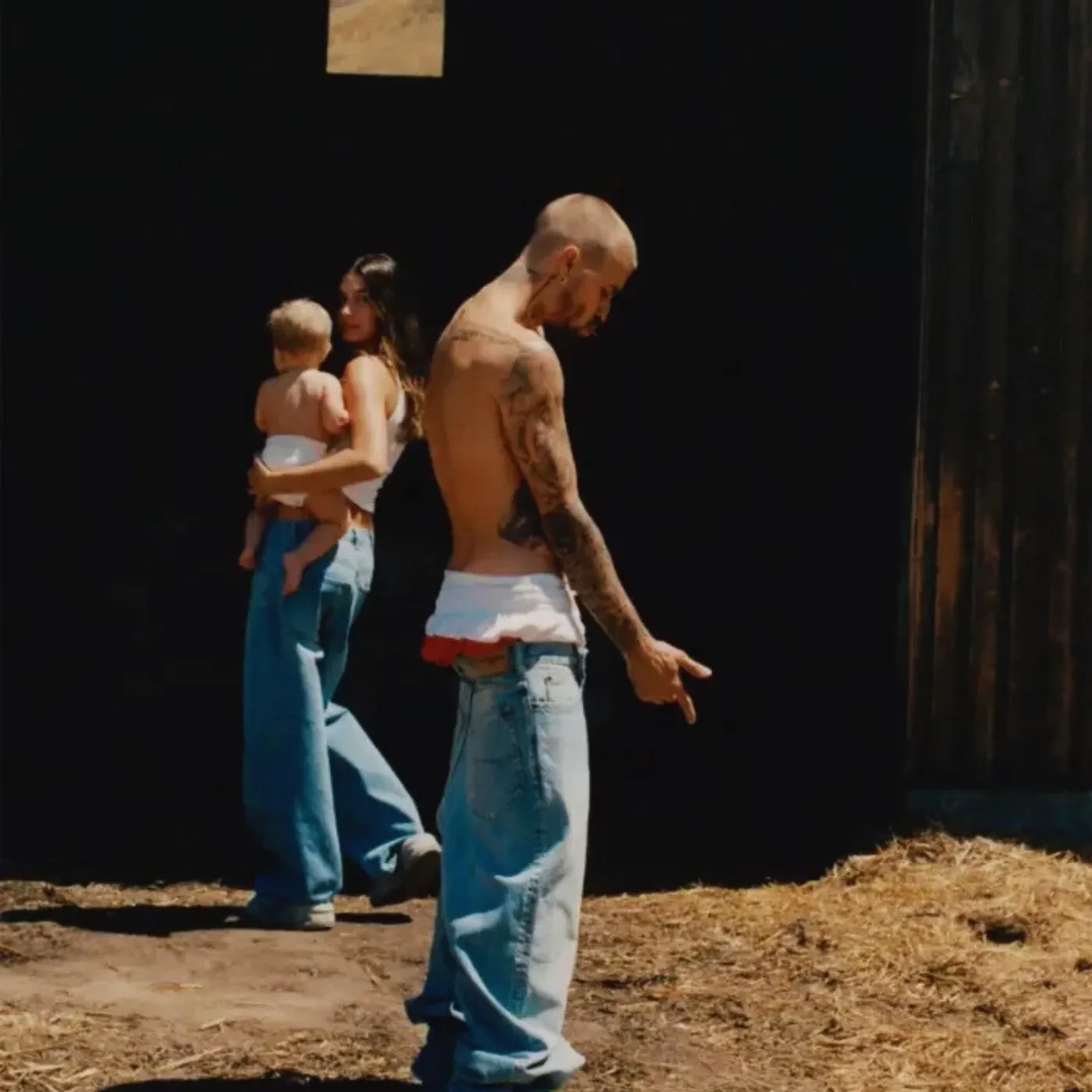

Pitchfork Hands Justin Bieber SWAG a Lukewarm Nod as Buzz Intensifies
Justin Bieber has always been a magnet for controversy, debate, and feverish public interest. This week was no different, as Pitchfork dropped its much-anticipated review of his new album “SWAG,” delivering a precise 7.3/10 score that instantly split music circles and set social media ablaze with commentary.

The rating, while solidly above average, sparked fierce online chatter. For some, it confirmed suspicions that Justin Bieber’s creative vision is maturing but perhaps uneven. For others, it was a reminder that no matter what he releases, he remains one of pop music’s most polarizing lightning rods.
But the numbers are only the start of the story. The discourse around “SWAG” reflects a larger battle over Justin Bieber’s reputation, his sound, and the public’s insatiable need to pick apart every move he makes.
The Weight of a 7.3: More Than Just a Number
Pitchfork is notorious for its sharp-tongued, cerebral approach to pop music criticism. A 7.3 rating might seem generous for some, damning with faint praise for others. In Pitchfork’s world, it means the album is genuinely good—but not essential, not game-changing.
Justin Bieber’s team knows exactly how important these numbers are. In an industry where Metacritic compilations and TikTok snippets can make or break a release, this score is bound to become a talking point—both for believers in Bieber’s evolution and for those convinced he’s stuck in autopilot.
While the review itself praised “SWAG” for its stylistic risks and polished production, it also highlighted a sense of inconsistency. Some tracks deliver the classic Bieber melodic hook in spades. Others, reviewers said, feel more like trend-chasing exercises designed to keep pace with streaming-era genre blends.
Who Really Cares About Pitchfork Scores?
It’s a fair question—and one that Justin Bieber’s camp likely wrestles with behind closed doors. While Pitchfork’s influence on the general pop audience might be limited, the site still carries massive clout among music journalists, playlist curators, and the broader “taste-making” culture.
A 7.3 ensures SWAG can’t be written off as a failure. It’s not a pan. But it also means it’s unlikely to be included in any year-end best-of lists or get the critical halo effect that can lift an album from mere product to “cultural moment.”
It also opens the floodgates for the internet’s favorite pastime: overanalyzing Justin Bieber’s artistic choices.
The Sound of SWAG: Hit or Miss?
SWAG isn’t a subtle title, and the record itself is anything but shy. It’s packed with features designed to ensure Spotify playlist dominance, including contributions from Gunna, Sexyy Red, and Cash Cobain.
Pitchfork’s review was especially attentive to the record’s pivot toward harder-edged trap beats and the increasingly casual delivery that defines much of modern hip-hop-influenced pop.
Tracks with Gunna pulse with that minimalist, cold-blooded swagger that’s defined Atlanta rap’s global takeover. Sexyy Red’s appearance injects explicit, unfiltered braggadocio that will resonate with TikTok’s algorithm. Cash Cobain’s contribution adds grime and street energy, deliberately breaking with Bieber’s older, more sanitized radio sound.
For Pitchfork, these choices are a double-edged sword. They praised Bieber’s willingness to adapt and to listen to what’s dominating youth culture. But they also warned it sometimes sounds like Bieber cosplaying trends instead of owning them.

A Strategic Move or Creative Stagnation?
Justin Bieber has built his career on relentless reinvention. From sugary teen pop to the moody R&B of Purpose and the laid-back spiritual vibes of Changes, he’s never been shy about shifting his sound.
SWAG is arguably his most self-aware release yet. It’s flashy, shamelessly commercial, and engineered to win streams across demographics. But in doing so, it also risks diluting what makes Bieber a singular pop figure.
Pitchfork’s 7.3 seems to say, This is a fun record. It will get plays. But does it tell us anything new about Justin Bieber?
The question is cutting precisely because Bieber himself has insisted for years that he’s moved beyond pop’s disposable machinery. He’s spoken candidly about burnout, the ugly pressures of fame, and the emptiness of making music for money instead of meaning.
SWAG, with its stacked features and viral-ready production, seems engineered to maximize exposure, not emotional depth. And for a site like Pitchfork, that will always cap the score.
Justin Bieber’s Relationship with Critics
This isn’t the first time Justin Bieber has watched critics pick apart his work.
His earliest records were dismissed as disposable teen bait. Purpose got the first serious critical nods, credited with elevating his sound and embracing darker, moodier themes. Changes and Justice split reviewers down the middle, praised for their polish but critiqued for being overly safe or even cloying.
SWAG lands in a different climate altogether. Streaming-era pop has changed. Genre boundaries are blurrier. TikTok and Instagram dictate viral moments, not label rollouts.
A 7.3 might even be savvy PR. It keeps Bieber in the critical conversation without giving his haters ammunition to call it a flop. It suggests just enough credibility for playlist curators while leaving room for the controversy that drives streams.
The Social Media Circus
Of course, the real measure of SWAG won’t be Pitchfork’s verdict. It will be the social media response.
Already, Twitter and Instagram are flooded with takes. Some call Pitchfork too harsh. Others say 7.3 is generous. Memes are circulating comparing the score to previous albums, drawing battle lines between Bieber believers and die-hard critics.
On Facebook, posts about the Pitchfork score are racking up thousands of likes, angry reacts, and “laughing” emojis. Engagement is through the roof precisely because Bieber remains the easiest pop star to love or hate in equal measure.
His name in a headline guarantees clicks. Add a review score, and you’ve got a perfect recipe for social debate.
Industry Impact: Will It Matter?
For Bieber’s label, the answer is nuanced. A Pitchfork review won’t tank album sales, especially since streaming has made pop audiences less dependent on “serious” reviews.
But it will matter to industry insiders. Festival bookers. Playlist editors. Brand managers who want to see whether Bieber is still “cool” enough to headline a major event or sell sneakers to Gen Z.
A 7.3 is enough to keep the door open. It says Justin Bieber is relevant, even if he’s not untouchable.
Why This Score Is Actually a Win
Here’s the truth: the worst thing for Justin Bieber would be indifference.
Pitchfork’s 7.3 is polarizing. It’s specific enough to inspire debate. It’s not so high that everyone shrugs and says “masterpiece,” and not so low that everyone dismisses it as a failure.
It creates precisely the conversation that Bieber and his team know will fuel streams.
Whether you think he’s evolving or selling out, you’re talking about him. And in 2025’s hyper-competitive music landscape, that’s the most valuable currency of all.

Final Thoughts: The Art of Staying Relevant
At the end of the day, Justin Bieber didn’t release SWAG to win over Pitchfork alone. He released it to stay in the conversation—to remain one of the few artists whose every move becomes a story.
That’s exactly what this 7.3 review guarantees.
It’s messy. It’s complicated. It’s perfect for social media. And it ensures that for another album cycle, Justin Bieber will be all anyone’s talking about.
Love him or hate him, you can’t ignore him. And for a pop star whose career has thrived on extremes, that might just be the sweetest spot of all.


















